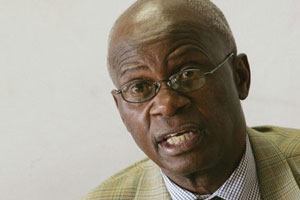
Patrick Chinamasa was the Zanu PF candidate for the Makoni Central House of Assembly seat in the March 2008 elections.
Standard Comment
He was defeated by the Movement for Democratic Change candidate, John Nyamande. He polled 4 050 votes against Nyamande’s 7 060.
President Mugabe appointed him to the Senate in August 2008 and subsequently swore him in as Minister of Justice and Legal Affairs in January the following year.
It is highly unlikely that he will win the seat come elections next year. The reasons he lost it are as valid today as they were then. It is clear that his political life depends on Mugabe’s magnanimity. He is not the only one who finds his political fortunes hinged on those of one individual. That is what makes him and like-minded individuals in Zanu PF a danger to peace.
The danger he poses was manifested in the interview he gave to the BBC last week. In the interview he said that the military and veterans of the 1970s liberation war would rise against Morgan Tsvangirai if he wins the presidential elections.
Not only has Chinamasa taken it upon himself to be the spokesman of the two groups, but also, the tone of his words implies that he is ready to incite the groups to subvert the popular will.
The language Chinamasa has chosen to use is quite inflammatory and can easily turn into hate speech. We have seen how the war vets have acted in the past when they have taken the law into their own hands with the backing of the military. Hundreds of people have died in the past 12 years at the hands of paramilitary gangs who have been incited by Zanu PF’s political leadership. The scenario is likely to repeat itself if people like Chinamasa continue to use stirring language during a time when the country is going through such a delicate phase.
- Chamisa under fire over US$120K donation
- Mavhunga puts DeMbare into Chibuku quarterfinals
- Pension funds bet on Cabora Bassa oilfields
- Councils defy govt fire tender directive
Keep Reading
Chinamasa should know that ultimately, it is the people who decide whom they want to be ruled by and politicians who have failed, and are unlikely to win future elections, must explore other career paths.










